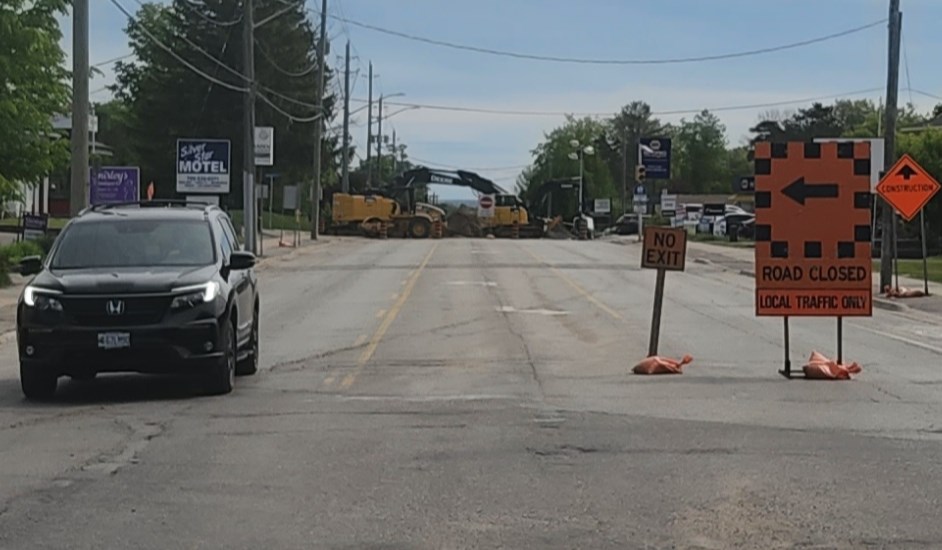In 2017, there were two petitions on traffic being circulated in Midland to which I am aware.
One was referred to by Mayor Bill Gordon at a meeting as reported by Midland Today on April 15. It was in response to the change from four lanes to two with a turning lane and two bike lanes on Yonge St. and, as the mayor mentioned, it was signed by several hundred people.
The other was one I was circulating on my stretch of Fourth St. concerning speeders, loud mufflers and large trucks using the street against regulation. It was signed by about 50 people though that represented some 80% of affected residents.
And so I come to the difference between the two petitions.
The woman who circulated the first one was reported as saying that many of the signers of her effort were from out of town – from our neighbouring communities.
These were people who were keen to get through town and to home or work and had no concern for what Mr. Steve Kux referred to in his deputation to council as “a place where people come together and live.”
They regarded Yonge St. as a “conveyance.”
I don’t know what percentage of these names were those of residents of Midland. But I do know that when I gave my petition to the then mayor Stewart Strathearn, he leafed through the pages of names and said, “Well, at least they all live in Midland” – a fairly pointed remark made in obvious comparison to the petition promoting the interests of non-residents.
Our current mayor says he’s bringing the possibility of Yonge St. reverting to four lanes up solely to ensure that all possibilities are considered, which is fair, but to mention this petition of several years ago with its flawed methodology as something to base decisions on would be a serious mistake.
There’s something about two lanes each way that encourages people to pass whether there is any advantage to be gained or not.
Prior to the traffic pattern changes of 2017 Yonge St. from CR93 to King had three full stop lights and one pedestrian-activated crossing over a three-kilometre distance.
Those of us who wanted to turn left got to stop in the ‘passing’ lane and wait for someone to rear-end us before we got a break in the oncoming traffic.
People turning right – to the businesses or homes that make this area a community - also caused heavy braking.
These features combined to make it highly likely traffic in one or both lanes in each direction would be brought to a halt. And those two lanes in each direction of competing traffic were passing pedestrians only feet away with just a curb to arrest them in an emergency.
Bicycles and electric vehicles either blocked the curb lane, requiring cars to veer around them, or took to the sidewalks to compete for space with pedestrians.
Although two lanes each way may look inviting, the result on Yonge St. was to increase the level of risk.
The current layout reduces that risk substantially.
The left-turn lane lets cars sit in relative safety while traffic passes them without having to make risky lane changes. The single lane in each direction moves more freely and slows traffic, which is now farther from pedestrians – two major improvements especially during the periods of heavy student presence. Electric vehicles and bicycles have their own space.
When we moved here, we were told by a lifelong resident of Yonge St that in her time the street had been two lanes with mature trees on each side.
While it’s obvious we won’t be going back to that version, it is evidence of the cycle of planning that all communities are dealing with – rapid growth and sprawl seemed to demand primacy for cars at the expense of neighbourhoods and climate friendly practices.
Midland has made efforts to regenerate its canopy in its parks and other areas and has declared itself a ‘bee friendly’ community.
Slowing traffic and favouring pedestrian and cycling friendly planning would be another way to contribute to a solution to climate change rather than to continue to be a cause of the major problems we are facing today.
I would encourage people to speak to their councilors and with the mayor to make their opinions heard.
Bill Molesworth is a retired CEO and chief librarian of both the Midland and Fredericton public libraries.



